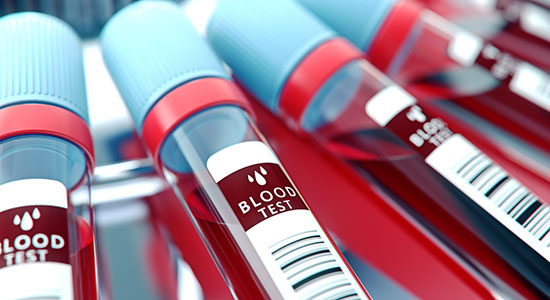
June 27, 2019 – The U.S. Supreme Court today vacated (5-4) a Wisconsin Supreme Court decision that upheld the drunk driving conviction, seventh offense, of a Wisconsin man who was unconscious when police directed his blood drawn without a warrant.
The decision, in Mitchell v. Wisconsin, leaves open a pivotal question. As Justice Neil Gorsuch pointed out in a dissent, the Court declined to answer whether Wisconsin’s implied consent law alone justifies a warrantless blood draw on unconscious individuals.
Under Wisconsin’s implied consent law, Wis. Stat. section 343.305(2), anyone who operates a motor vehicle on Wisconsin’s roads “is deemed to have given consent to his or her breath, blood or urine” to determine the presence of drugs or alcohol. Under Wis. Stat. section 343.305(3)(b), "[a] person who is unconscious or otherwise not capable of withdrawing consent is presumed not to have withdrawn consent under this subsection."
The U.S. Supreme Court did not decide whether police officers can rely on Wisconsin’s informed consent law alone, which is a question the Wisconsin Supreme Court has grappled with in several unconscious driver cases in the last several terms. (In Mitchell, the Wisconsin Supreme Court upheld the conviction, but was divided on rationale).
Instead, the U.S. Supreme Court reviewed the question under the Fourth Amendment’s exigent circumstances exception, which allows police to obtain a warrantless blood draw in emergency-type situations, which leave no time to apply for a warrant.
The decision clarifies that when police encounter an unconscious driver, the exigent circumstances doctrine will “almost always” permit a blood test without a warrant.
“[W]hen a driver is unconscious, the general rule is that a warrant is not needed,” wrote Justice Samuel Alito, joined by Chief Justice John Roberts, Justice Stephen Breyer, and Justice Brett Kavanagh. They said an exception could apply in unusual circumstances.
“We do not rule out the possibility that in an unusual case a defendant would be able to show that his blood would not have been drawn if police had not been seeking BAC information, and that police could not have reasonably judged that a warrant application would interfere with other pressing needs or duties,” Justice Alito wrote.
“[P]olice officers most frequently come upon unconscious drivers when they report to the scene of an accident, and under those circumstances, the officers’ many responsibilities – such as attending to other injured drivers or passengers and preventing further accidents – may be incompatible with the procedures that would be required to obtain a warrant,” Justice Alito wrote.
Interestingly, the defendant in this case, Gerald Mitchell, was not involved in an accident. Police found him wandering on a beach in Sheboygan, and he admitted that he had been driving and parked his van nearby because he was too drunk to drive.
After his arrest for drunk driving, Mitchell's condition deteriorated. Police could not do an evidentiary breath test, so police diverted him to the hospital for a blood test. He became unresponsive before arriving at the hospital.
 Joe Forward, Saint Louis Univ. School of Law 2010, is a legal writer for the State Bar of Wisconsin, Madison. He can be reached by email or by phone at (608) 250-6161.
Joe Forward, Saint Louis Univ. School of Law 2010, is a legal writer for the State Bar of Wisconsin, Madison. He can be reached by email or by phone at (608) 250-6161.
Justice Clarence Thomas tipped the scales on the judgment to vacate the Wisconsin Supreme Court’s decision and remand the case. But he concluded that exigent circumstances will always be present once police have probable cause to believe the driver is drunk, regardless of whether the driver is unconscious.
“Today, the plurality adopts a difficult-to-administer rule: Exigent circumstances are generally present when police encounter a person suspected of drunk driving – except when they aren’t,” wrote Justice Thomas, favoring the rule with no exception.
“The plurality’s presumption will rarely be rebutted, but it will nevertheless burden both officers and courts who must attempt to apply it.”
Four other justices dissented. Justice Sotomayor, joined by Justice Ginsburg and Justice Elena Kagan, said a warrant is necessary if there is time to get one.
“The State of Wisconsin conceded in the state courts that it had time to get a warrant to draw Gerald Mitchell’s blood, and that should be the end of the matter,” wrote Justice Sotomayor, joined by the two other justices. “Unless there is too little time to do so, police officers must get a warrant before ordering a blood draw.”
Justice Neil Gorsuch wrote a separate dissent. He said he would have dismissed the case as improvidently granted because the court did not address the implied consent question, instead examining the case under exigent circumstances.
The case will be remanded to the Wisconsin courts, which will allow Mitchell to argue that the U.S. Supreme Court’s decision, applied to the facts and circumstances of his case, supports his argument that the blood draw should have been suppressed.
Related Articles
OWI Law: U.S. Supreme Court Weighing Wisconsin Case on Implied Consent – InsideTrack (May 2019)
Supreme Court Uphold Warrantless Blood Draw of Unconscious Driver – WisBar News (July 3, 2018).
OWI Law: Implied Consent Back on State Supreme Court’s Radar, Again – InsideTrack December 2018)
Supreme Court Split in Case Involving Blood Draw on Unconscious OWI Suspect – WisBar News (March 6, 2017)
